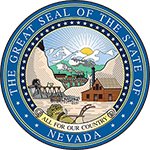Audits FAQs
Every tax managed by the Department of Taxation can be audited. If you are facing an audit, you will find useful information here.
Table of Contents
How do I prepare for an audit?
The auditor will get in touch with you to set up a date, time, and place for the audit that works for both of you. This scheduling allows you enough time to organize your financial records.
Where does the audit take place?
Audits typically happen at your business site, but they can also occur at your CPA/bookkeeper’s office, your home, or the Department of Taxation, depending on what’s most convenient for you.
How many years will the audit cover?
If your business is registered for Sales and Use Tax, the audit usually reviews the previous 3 years. Registering for Sales and Use Tax does not mean that you are automatically registered for other required Excise Taxes.
If you have employees or need audits for Modified Business Tax or other Excise Taxes, these audits often happen at the same time as the Sales and Use Tax audit.
If your business is not registered, the audit can extend back up to 8 years (according to NRS 360.355).
What documents will be reviewed during the audit?
Nevada law mandates that a registered business keep its records for a minimum of 4 years, or 8 years if it’s not registered. (NRS 372.735.)
For a Sales and Use Tax audit, the specific records that you will need can vary based on your business type. Generally, you may need to provide some or all of the following:
- Copies of previously filed tax returns with any related reports or work papers used to fill them out.
- Detailed general ledgers and a chart of accounts.
- Monthly sales journals or registers.
- Sales invoices.
- Resale certificates and exemption letters collected.
- Federal Income Tax returns for the years under audit.
- All purchase invoices.
- Cash disbursement journals or check registers.
- Asset depreciation schedule or fixed asset schedule.
- Bank statements or cancelled checks
- Cash register “Z” tapes.
- Other records the auditor may identify as the audit is performed.
Not every business will have a comprehensive set of accounting records. The auditor will figure out what specific documents you need for your audit during an initial phone call.
What happens after the audit process is complete?
After finishing the audit, the auditor will discuss the results with you, including any additional taxes owed, credits for overpayments, or confirmation that your business complies fully with tax laws.
The Department will then conduct a supervisory review of the audit findings.
What documentation will I receive after the audit?
You will receive a Notice of Deficiency or Credit, detailing the audit process and its outcomes, along with a Petition-for-Redetermination: (English PDF || Spanish PDF), information about your rights and responsibilities, and a return envelope.
This notice will clearly state the deadline to pay any extra taxes owed or the date by which you can petition (appeal) the decision to avoid extra penalties and interest. (NRS 360.350 and NRS 360.400.)
Our goal is to educate taxpayers and ensure businesses adhere to tax laws, and that every business pays its fair and legal share of taxes.
It is also important to know that auditors are not judged by the amount of tax they collect during audits. (NRS 360.145.)
- See also: The appeals process
Note: FAQs are for general guidance only. For written advice as it relates to your business, request an advisory opinion from the Department.
More Information
- Appeals FAQs
- Audits FAQs
- Bank Branch Excise Tax FAQs
- Cannabis Establishment Tax FAQs
- Cigarette & Other Tobacco Products (OTP) FAQs
- Commerce Tax FAQs
- Consumer Use Tax FAQs
- Estate Tax FAQs
- Exhibition Facilities Fee FAQs
- Gold & Silver Excise Tax FAQs
- Hearings FAQs
- Insurance Premium Tax FAQs
- Liens FAQs
- Liquor Tax FAQs
- Live Entertainment Tax FAQs
- Locally Assessed Property Tax FAQs
- Marketplace Facilitator/Seller FAQs
- Modified Business Tax (MBT) FAQs
- Nevada National Guard Tax Holiday FAQs
- Off Highway Vehicles & Fuel Tax FAQs
- Peer-to-Peer FAQs
- Real Property Transfer Tax FAQs
- Sales Tax FAQs
- Secure Email FAQs
- Short Term Lessor Fee FAQs
- Tax Credits FAQs
- Tobacco Products – 2024 Updated FAQs
- Transportation Connection Tax (TCT) FAQs
- US Dept of State Tax Exemption Card
- Veterans’ Tax Exemptions FAQs
